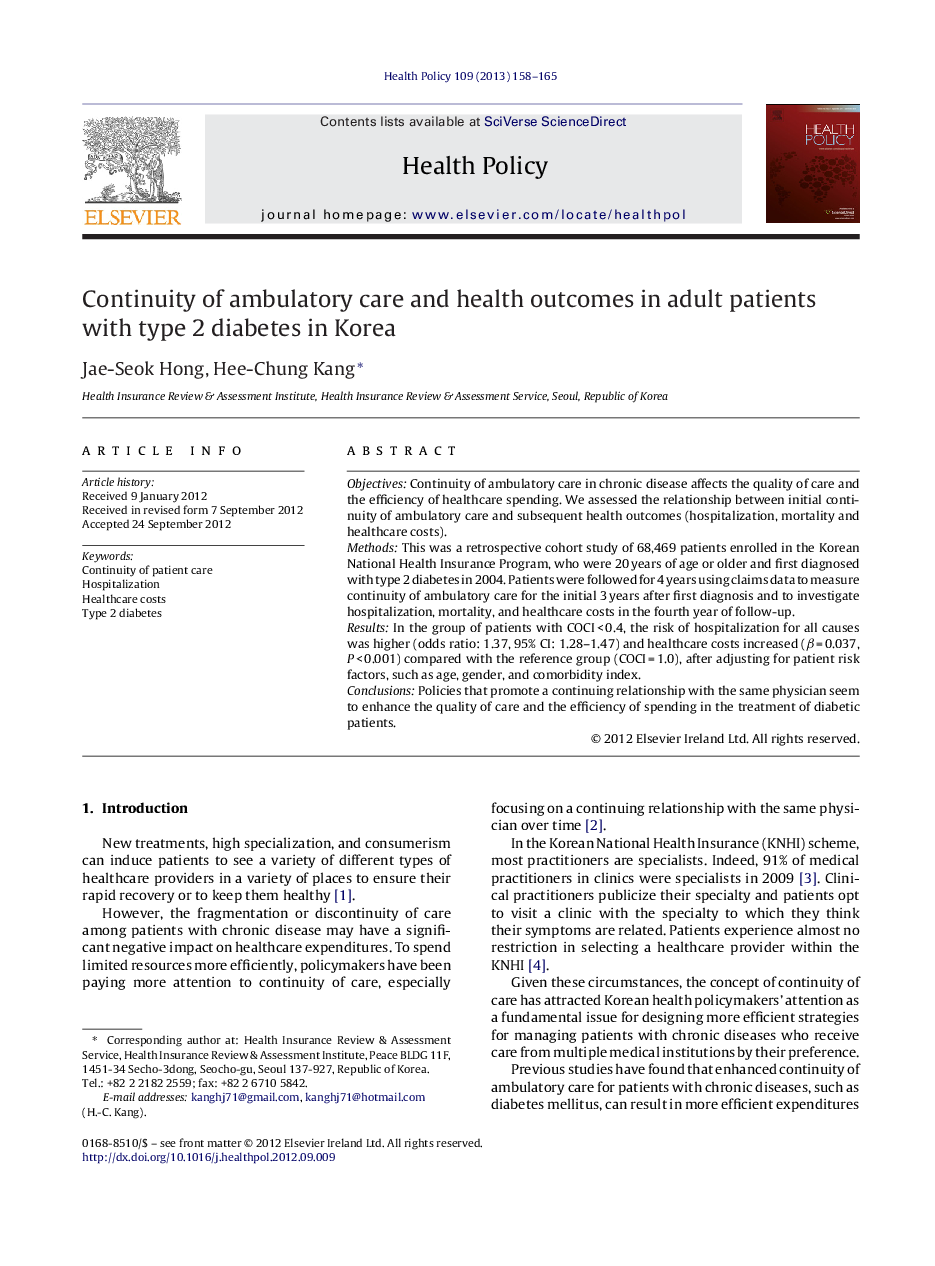| Article ID | Journal | Published Year | Pages | File Type |
|---|---|---|---|---|
| 4197968 | Health Policy | 2013 | 8 Pages |
ObjectivesContinuity of ambulatory care in chronic disease affects the quality of care and the efficiency of healthcare spending. We assessed the relationship between initial continuity of ambulatory care and subsequent health outcomes (hospitalization, mortality and healthcare costs).MethodsThis was a retrospective cohort study of 68,469 patients enrolled in the Korean National Health Insurance Program, who were 20 years of age or older and first diagnosed with type 2 diabetes in 2004. Patients were followed for 4 years using claims data to measure continuity of ambulatory care for the initial 3 years after first diagnosis and to investigate hospitalization, mortality, and healthcare costs in the fourth year of follow-up.ResultsIn the group of patients with COCI < 0.4, the risk of hospitalization for all causes was higher (odds ratio: 1.37, 95% CI: 1.28–1.47) and healthcare costs increased (β = 0.037, P < 0.001) compared with the reference group (COCI = 1.0), after adjusting for patient risk factors, such as age, gender, and comorbidity index.ConclusionsPolicies that promote a continuing relationship with the same physician seem to enhance the quality of care and the efficiency of spending in the treatment of diabetic patients.
